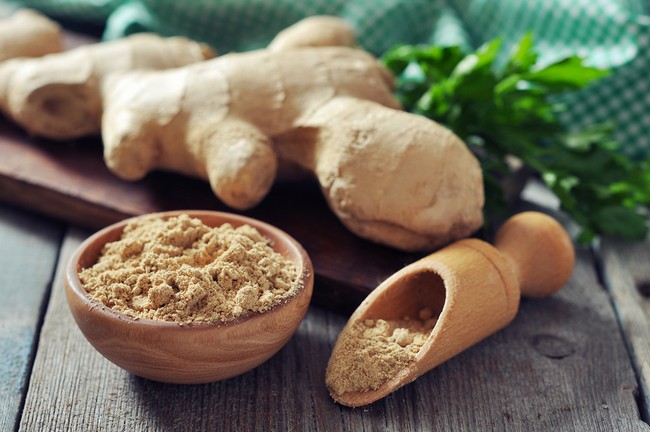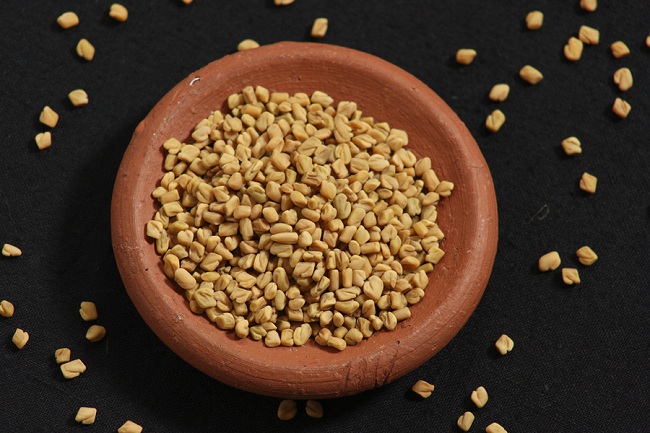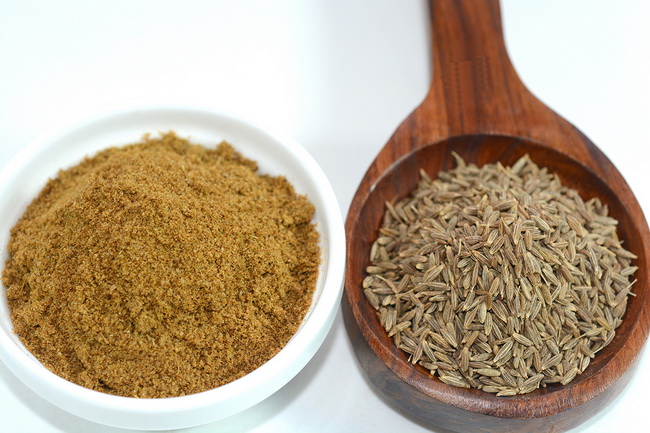- Make It Yourself Lavender Heart-Shaped Bath Bombs!
- 20 Things You Never Knew About “Down There”
- 12 Best Foods For Those Suffering From Arthritis Pain
- 12 Personal Hygiene Mistakes Almost Everyone Makes (Mom Never Told You About #4!)
- 15 Medicinal Plants And Herbs From The Cherokee People
- 12 Mind-Blowing Benefits Of Drinking Coconut Water During Pregnancy
- 12 Outstanding Winter Foods That Won’t Fatten You Up Like A Christmas Turkey
Top 12 Herbs and Spices to Control Type 2 Diabetes (We Love #9!)

Photo credit: bigstock.com
In various parts of the world, our life expectancy is continuing to rise. This is good news, however, quality of life does not appear to be rising nearly as quickly. We live longer, but we don’t live healthier lives.
There has been a dramatic increase in cases of type 2 diabetes around the world. With no cure in sight, estimates are that by the year 2030, the world will have 439 million diabetics!
The good news in all of this is that living with diabetes becomes easier as scientists discover more and more about the types of foods that we eat.
Help in controlling your blood sugar levels is as close as in your kitchen! There are numerous herbs and spices that do an excellent job at stabilizing blood sugar levels which can be a huge help to diabetics.
These natural herbs and spices are not meant to replace any medication, only to enhance your treatment. Never stop taking medication without your doctor’s approval. Talk to your doctor before starting any herbal program. Even though most people tolerate these natural substances well, some can interfere with certain prescription medications. Be safe and speak with your doctor first to ensure your health and well-being.
Now, let’s take a look at the best herbs and spices that are well-known to scientists for their ability to stabilize blood sugar levels.
1. Cayenne
It’s hot stuff, but the active ingredient in cayenne pepper, capsaicin, is often used to treat diabetes related nerve pain. You will find it in many over the counter lotions and creams designed to relieve pain. Cayenne acts as both an antioxidant and anti-inflammatory agent. The American Journal of Clinical Nutrition published a study which found that when people with diabetes consumed a meal that had liberal amounts of this spice added to it, they needed less insulin after their meal to reduce their blood sugar levels. Talk to your doctor about how much of this spicy pepper would be right for your particular condition.
2. Turmeric
The more scientists study this spice the more amazing it becomes! This relative of the ginger family is common in Indian cuisine. There have also been plenty of research studies showing that turmeric can be quite effective in fighting diabetes. The Journal of Nutritional Biochemistry stated that the curcumoinoids in turmeric can even prevent diabetes from developing in the first place, as well as improving the function of the liver. Another study that involved rats, showed that when these animals were given turmeric that it lowered their blood sugar and hemoglobin levels dramatically when compared to the control group.
3. Sage
The Native Americans used to say that those who drank sage tea were immortal. One study out of Germany found that when diabetics drank sage tea on an empty stomach it reduced their blood sugar levels dramatically. Sage is often used in cooking and it makes a tasty, but strong cup of tea as well. Speak to your doctor about sage and if drinking several cups each day could benefit you in your situation.
Continue to Page 2

Photo credit: bigstock.com
4. Ginger
Common in Asian foods, ginger is a relative of turmeric, so it’s no surprise that it can also help to lower blood sugar levels. One study published in 2012 showed that ginger root was so powerful in controlling blood sugar levels that the body could use glucose without relying on insulin. You can consume ginger as a supplement or in tea form. Consult your doctor for the correct dosage.
5. Oregano
Yep, we are talking about the same type of oregano that you use on your Italian dishes, only much more so. Sometimes called marjoram, oregano has been known for decades to treat parasitic infestations as well as being an excellent antibacterial compound. In one recent study, oregano was found to help control blood sugar levels. This is a powerful spice so speak with your doctor about how much you should consume.
6. Cloves
This herb has super high levels of quercetin, anthocyanins, and antioxidants. Cloves contain a natural anti-inflammatory compound called eugenol. Many of the compounds found in cloves are similar to the ones found in cinnamon, so it’s no wonder that this spice can also help to control blood sugar levels. Like all the herbs and spices on this list, speak with your doctor for proper dosage levels.
Continue to Page 3

Photo credit: bigstock.com
7. Fenugreek
This herb isn’t as popular in the US as it is in other countries, but perhaps it’s time you became acquainted with it. Fenugreek has been used for centuries for its medicinal abilities. Studies back up its traditional use as a powerful medicine. One study showed that fenugreek improves the metabolic function in diabetics via lower cholesterol levels and a higher acceptable allowance of glucose. Talk to your doctor and see if fenugreek is right for you.
8. Ginseng
The healing attributes of ginseng has stood to the test of time. Used for centuries for everything from improving the immune system to boosting mental performance and energy levels, this root isn’t nearly as well known for its ability to help treat those with diabetes. One study out of Croatia showed that ginseng reduced the amount of glucose in the blood. Most people consume this herb as a supplement, but it can also be consumed as a tea or tincture. Talk to your doctor about how to consume ginseng.
9. Cinnamon
Diabetes control doesn’t get much tastier than this! Although cinnamon doesn’t get a great deal of attention in the medical community, it certainly should! This spice is proven to be packed with antibacterial, antioxidants, anti-inflammatory compounds as well as the ability to reduce blood sugar levels. The best choice for diabetics is Ceylon cinnamon as it has the strongest compounds. Studies have shown over and over that this aromatic spice can lower the body’s resistance to insulin. In fact, cinnamon supplements can lower blood sugar levels so much so that most doctors will advise you to avoid other blood sugar lowering agents, like the ones on this list. Everybody is different so speak to your doctor about the proper dosage for your condition.
Continue to Page 4

Photo credit: bigstock.com
10. Garlic
Is there anything garlic cannot do? This popular herb can improve heart health as effectively as it wards off vampires but to top it all off, garlic is extremely helpful to diabetics as it stimulates the body’s production of insulin, which will maintain healthy blood sugar levels. Most people consume two cloves of slightly crushed garlic each day, but speak to your doctor first as too much garlic can not only ruin your love life, but it can interfere with some prescription medications, which is not a joke.
11. Cumin
Mysore University in India conducted research in 1998 as to the possible anti-diabetic compounds of cumin. This study was published in the journal Nutrition Research. This team of scientists found that when they fed diabetic rats cumin over an 8 week period that their overall blood sugar levels were much lower than the control group. Another review of studies, which was published in the 2005 edition in the International Journal of Food Science and Nutrition, confirmed that cumin could lower blood sugar levels. Ask your doctor about how much cumin might be right for your situation.
SEE ALSO: Artificial Sweeteners May Cause Diabetes
12. Aloe Vera
This one is rather surprising as almost everyone thinks aloe vera is only for skin burns. Phytotherapy Research published a study in 2001 which showed that aloe vera lowered the blood sugar levels of diabetic rats. Aloe vera is also great for the skin and the digestive system but speak to your doctor about how much aloe vera you can safely consume.
Traditionally, herbs and spices such as those listed above have been used for their medicinal compounds for thousands of years. Try adding them to your diet after consulting with your doctor and find out what your ancestors have known for generations; Mother Nature knows best.
References:
































